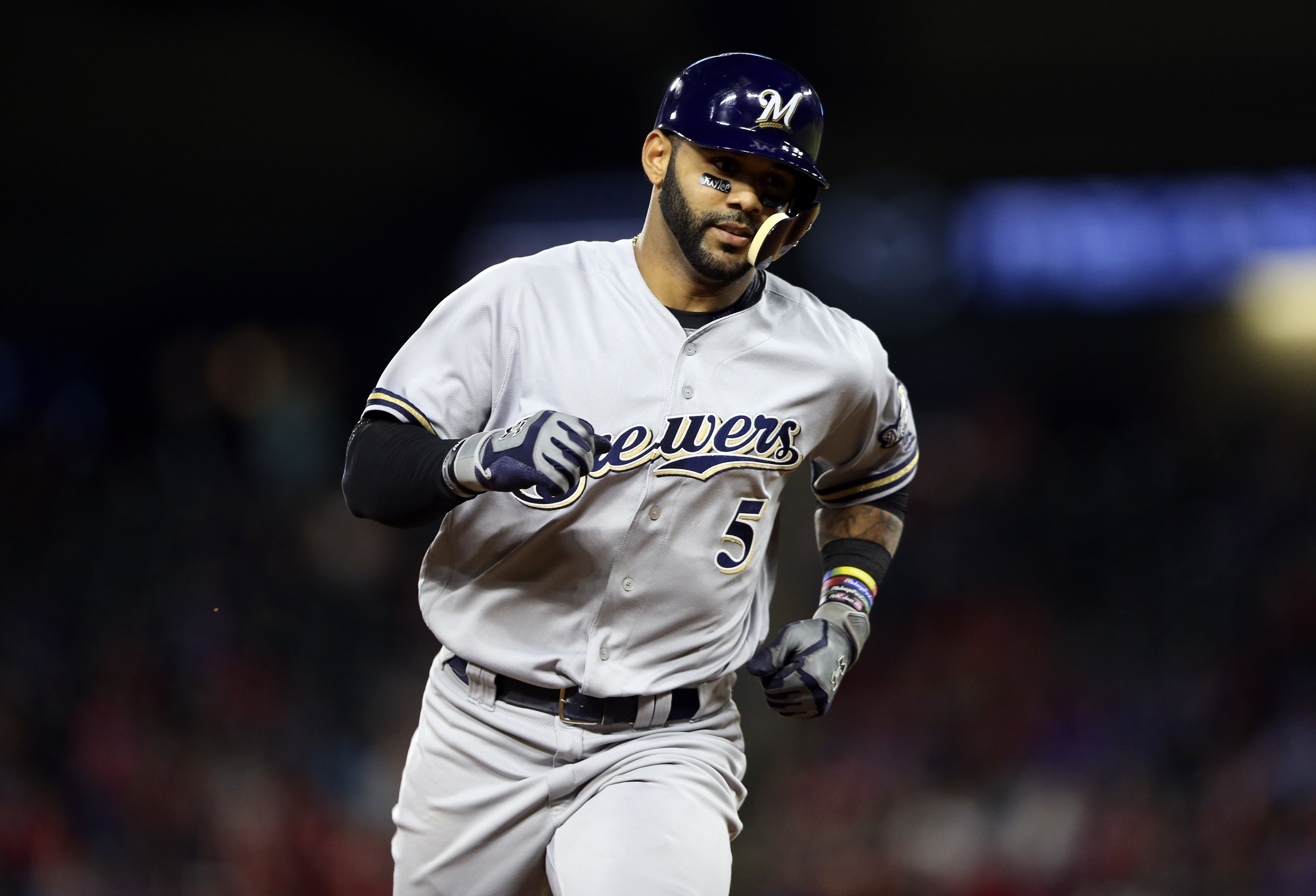The question of the Brewers’ rebuilding timeline has hung around the club for the last couple years, once it became clear that they were tearing down the big league club and starting over. This has been a relatively rapid process, particularly as it compares to what we have come to see from other rebuilds around the major leagues. The Brewers traded Carlos Gomez on July 30, 2015, and now, less than two seasons later, they have at least some hope of competing.
This is a far different timeline from what we have seen from other teams. The Cubs hired Theo Epstein after the 2011 season and weren’t competitive again until 2015. The Astros hired Jeff Luhnow in 2011 and also weren’t competitive again until 2015. The Royals perpetually rebuilt for twenty years before they finally decided to spend money to try and win.
Of course, there is no guarantee that this shorter timetable will actually come to pass; rebuilds fizzle all the time, and the Brewers could next be competitive in 2018, 2020, or 2030. This problem, then, brings me to the question this article is posing: Should the Brewers trade Jonathan Villar?
Villar was excellent last season. His 4.8 WARP ranked 30th among all position players, and his positional versatility gave him some additional value as he was able to stay in the lineup once Orlando Arcia was called up. However, there are some undeniable questions about his future performance. In roughly a full season’s worth of plate appearances over the previous three seasons, Villar had put up a combined 2.0 WARP. His .291 TAv was the highest of his career by over twenty points, and he tripled his career home run total (ten in the previous three years, 19 last year).
PECOTA shares this doubt; his median projection is for just 1.3 WARP. There are reasons to believe that number, which I discussed above. But there are also reasons to be skeptical. It is entirely possible that Villar is just a bit of a late bloomer who needed to play every day to reach his potential. Brew Crew Ball’s Derek Harvey wrote last offseason about some of the upside that Villar still had, and Villar’s 2016 season validated that opinion.
If I polled random Brewers fans about whether the team should trade Villar, the people who would support trading him are likely to be bearish on his chances of replicating last season, and vice versa. The two concepts are inextricably linked. If you think Villar is a four-win player, then you don’t trade him. If you think he’s a 1.5-win player, then you do.
However, there could be an additional calculation that goes into it. Villar was most valuable at shortstop last season, and the Brewers will now slot Orlando Arcia into that spot. At third base or second base, Villar is less valuable (unless his defense improved so much to make up for the positional difference); that is simply how the game works. Essentially, to most maximize Villar’s value, he would either have to play shortstop or the Brewers would trade him.
But that’s not how the game works. Teams don’t win by maximizing value; rather, they win by putting their best team on the field. If the Brewers are trying to win, they would do better to have Villar’s 3.5 wins at second base than not have them at all, even if he could have been worth four wins while playing at shortstop.
The question that this raises is the timing of the rebuild. If Villar were on the 2011 Astros, he likely would have been traded because that team chose to strip its big league team of all its assets. If he were on this year’s Cubs, they would keep him as a bench player because he is a good player and would be better as a backup than their other options. The Brewers, though, are somewhere in between. They would likely be able to get a massive return for Villar, but that would push their competitive window back further. They can keep him and play him out of position, but that would be sacrificing some overall value.
At some point during the rebuilding process, the team stops collecting assets and starts trying to put together a good team. The Brewers appear to have reached that point, as the addition of Travis Shaw to shore up a hole on the big league roster demonstrates. If they are correct in their valuation of their own timetable, then keeping Villar is absolutely the right move. He is an upgrade on Scooter Gennett at second base and provides cover for Arcia. But if they are wrong, then they have not taken full advantage of one of their most valuable assets.
This is largely an academic issue; the team is not going to trade Villar. He is a good player who is under team control through 2021, and his worst case scenario is to be a valuable bench player. However, I do think this issue raises interesting questions about how teams maximize their organization’s talents, because Villar clearly will not be put in the position at which he would be most valuable.

1 comment on “Should the Brewers Trade Jonathan Villar?”